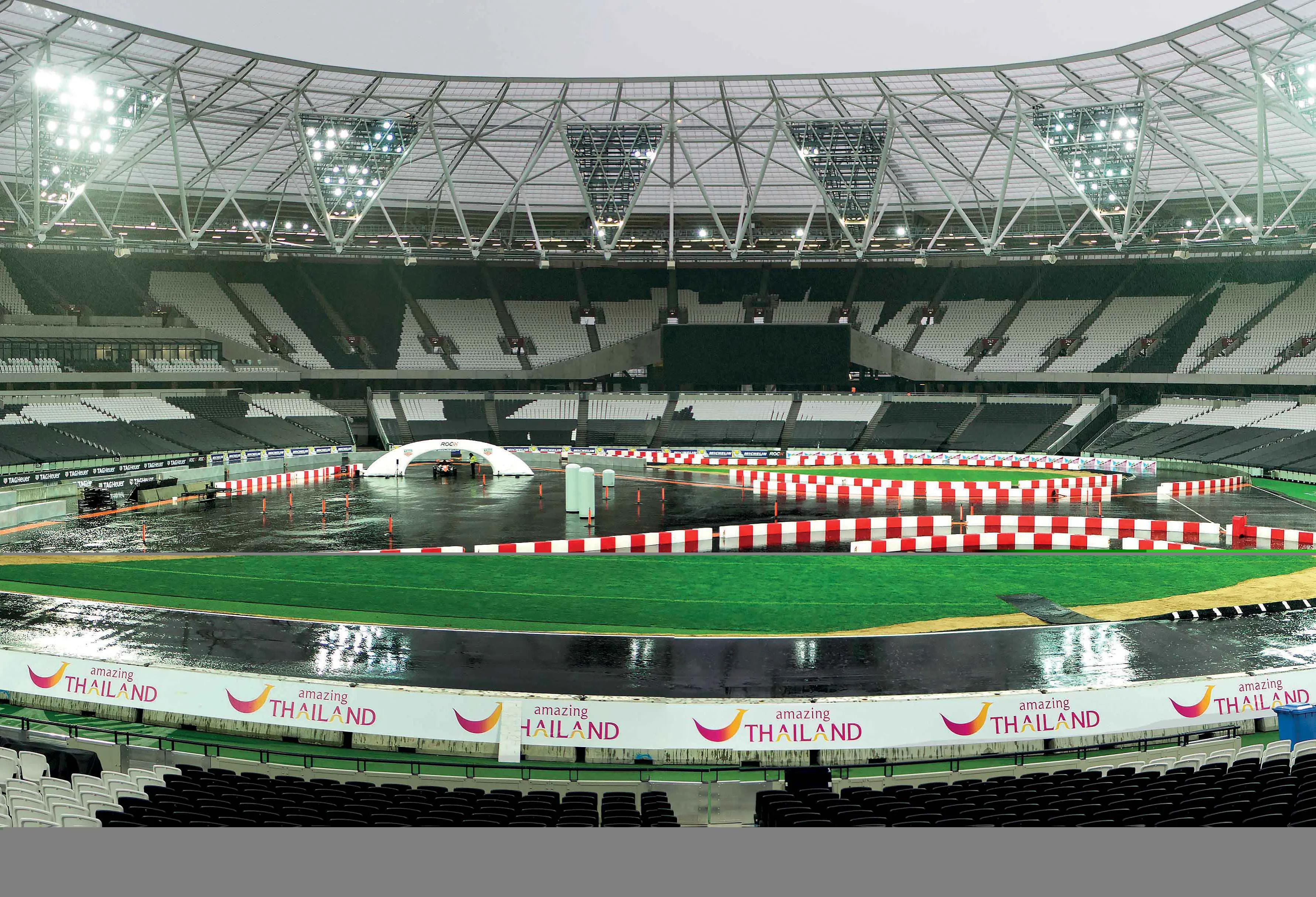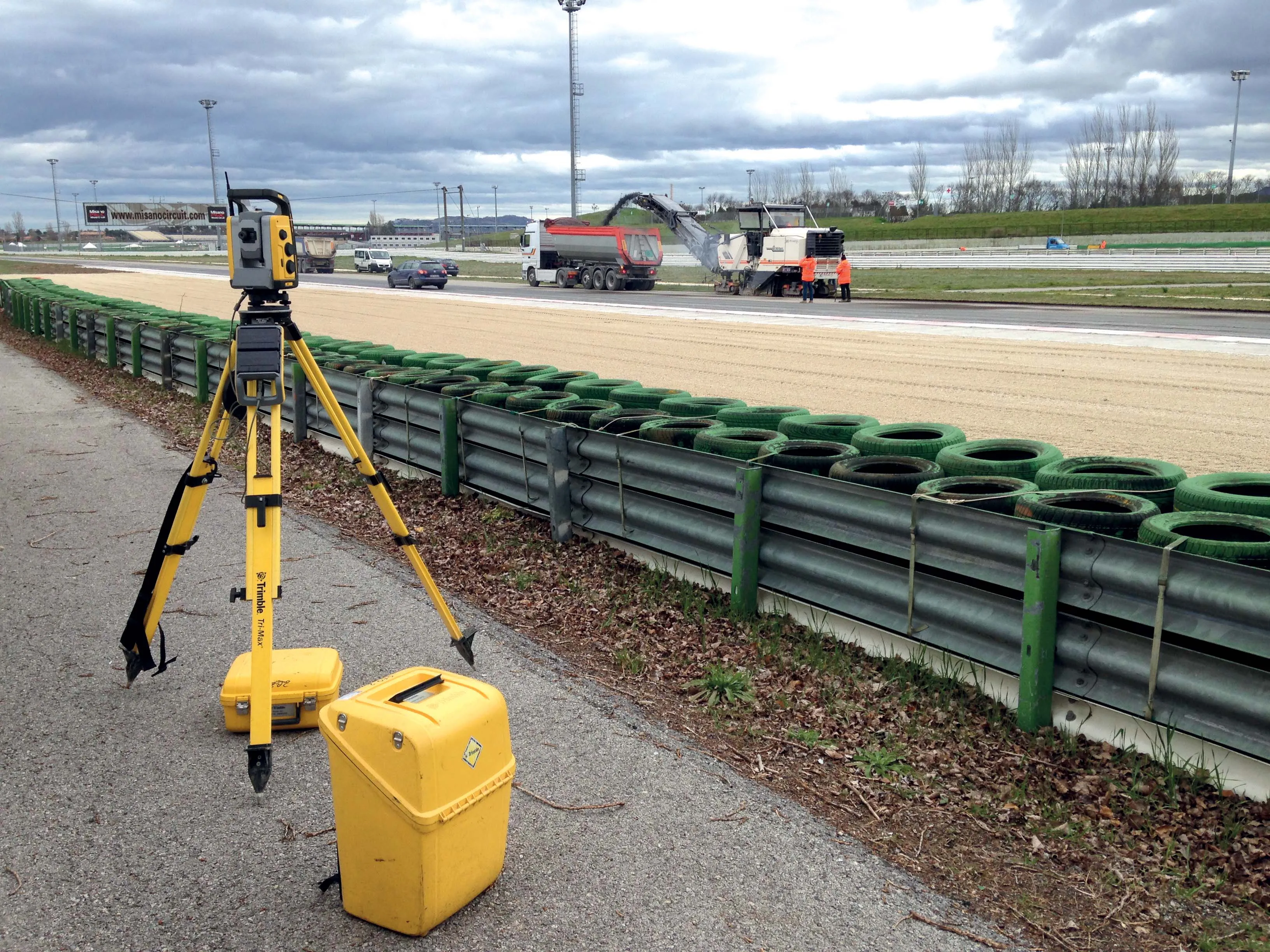Fast-track construction has taken on a new meaning following the successful staging of the Race of Champions in London’s Olympic Stadium.
The knockout tournament for the world’s best drivers – won by Formula 1 driver Sebastian Vettel – required a super-fast construction and dismantling of a safe, high-speed circuit within the Queen Elizabeth Olympic Stadium. Eurovia UK had just four weeks to design the track, complete trials and mobilise for the project following the contract award.
The circuit was co
June 17, 2016
Read time: 2 mins

Fast-track construction has taken on a new meaning following the successful staging of the Race of Champions in London’s Olympic Stadium.
The knockout tournament for the world’s best drivers – won by Formula 1 driver Sebastian Vettel – required a super-fast construction and dismantling of a safe, high-speed circuit within the Queen Elizabeth Olympic Stadium.3281 Eurovia UK had just four weeks to design the track, complete trials and mobilise for the project following the contract award.
The circuit was constructed in one week, allowing organisers three days for driving practice ahead of the event last November. Afterwards, the project team had 36 hours to remove the track, but accomplished this in just 25 hours.
Eurovia contracting business manager Dave Boswell said tight control of logistics was essential, given the complexity of the project and constraints on Eurovia’s access to the stadium.
Working in conjunction with the Race of Champions team, the track was designed by technical consultancy2374 Jean Lefebvre (UK). It was constructed with recycled road planings laid on aluminium trackway panels to protect the pitch’s underground heating. The 150mm base layer was then overlaid with SMA binder and a thin surface course paved in Echelon.
Sims Milling & Eurovia Roadstone processed the materials after laying trials at its Bull Lodge quarry in Essex. Conventional wheeled, tracked and midi-pavers were used to lay different grades of planings. Sims Milling also demonstrated that the material could be removed by cold milling without damaging the aluminium plates.
Around 3,000tonnes of road planings and 1,800tonnes of asphalt were used in the construction of the 8,000m2 circuit. It required 1,000 plates provided by Davis Trackway, which played a similar role for the opening ceremony of the 2012 Olympics.
The knockout tournament for the world’s best drivers – won by Formula 1 driver Sebastian Vettel – required a super-fast construction and dismantling of a safe, high-speed circuit within the Queen Elizabeth Olympic Stadium.
The circuit was constructed in one week, allowing organisers three days for driving practice ahead of the event last November. Afterwards, the project team had 36 hours to remove the track, but accomplished this in just 25 hours.
Eurovia contracting business manager Dave Boswell said tight control of logistics was essential, given the complexity of the project and constraints on Eurovia’s access to the stadium.
Working in conjunction with the Race of Champions team, the track was designed by technical consultancy
Sims Milling & Eurovia Roadstone processed the materials after laying trials at its Bull Lodge quarry in Essex. Conventional wheeled, tracked and midi-pavers were used to lay different grades of planings. Sims Milling also demonstrated that the material could be removed by cold milling without damaging the aluminium plates.
Around 3,000tonnes of road planings and 1,800tonnes of asphalt were used in the construction of the 8,000m2 circuit. It required 1,000 plates provided by Davis Trackway, which played a similar role for the opening ceremony of the 2012 Olympics.









